Search
Search Results

Article
Love, Sex, and Marriage in Ancient Egypt
Although marriages in ancient Egypt were arranged for communal stability and personal advancement, there is evidence that romantic love was as important to the people as it is to those in today. Romantic love was a popular theme for poetry...
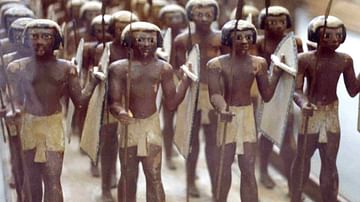
Article
Weapons in Ancient Egypt
The ancient Egyptian military is often imagined in modern films and other media as a heavily armed and disciplined fighting force equipped with powerful weapons. This depiction, however, is only true of the Egyptian army of the New Kingdom...

Article
Great Female Rulers of Ancient Egypt
Women in ancient Egypt had more rights than in any other ancient culture and were valued with greater respect. This is evident not only in the physical evidence and inscriptions but in their religion. Some of the most powerful and important...
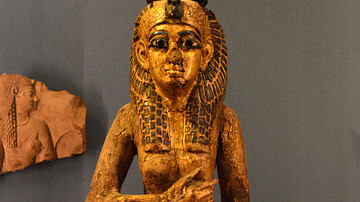
Article
The Gifts of Isis: Women's Status in Ancient Egypt
An inscription on an Egyptian papyrus dating from the 2nd century CE relates that the goddess Isis, bestowing gifts on humanity at the beginning of time, gave as much power and honor to women as she did to men. This brief passage reflects...

Article
Clergy, Priests & Priestesses in Ancient Egypt
The ancient Egyptians understood that their gods had prevailed over the forces of chaos through the creation of the world and relied upon humanity's help to maintain it. The people of Mesopotamia held this same belief but felt they were co-workers...

Article
Fashion & Dress in Ancient Egypt
Fashion in ancient Egypt epitomized the concept of simplicity and ease in movement and remained relatively unchanged in this regard for over 3,000 years. Clothing and footwear differed in ornamentation between the upper and lower classes...
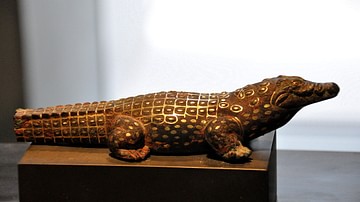
Article
Pets in Ancient Egypt
Pets were very important to the ancient Egyptians and considered gifts from the gods to be cared for until their death when they were expected to be returned to the divine realm from which they had come. In life, pets were well cared for...
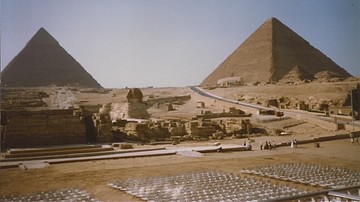
Article
Ten Ancient Egypt Facts You Need to Know
Ancient Egypt is defined as the civilization which flourished in North Africa between c. 6000-30 BCE – from the Predynastic Period in Egypt (c. 6000 - c. 3150 BCE) through the Ptolemaic Dynasty (323-30 BCE) before Egypt became a province...
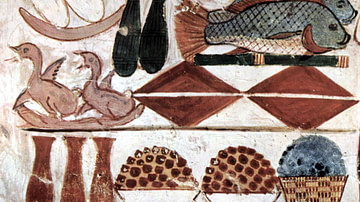
Article
Food & Drink in Ancient Egypt
Food and drink in ancient Egypt relied on barley and wheat, the primary crops cultivated along the Nile. The Egyptian diet was based on bread, beer, and vegetables. Meat was expensive and only rarely eaten. The majority of people ate fairly...
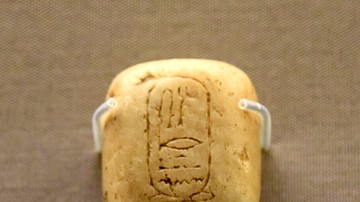
Article
Trade in Ancient Egypt
Trade has always been a vital aspect of any civilization whether at the local or international level. However many goods one has, whether as an individual, a community, or a country, there will always be something one lacks and will need...